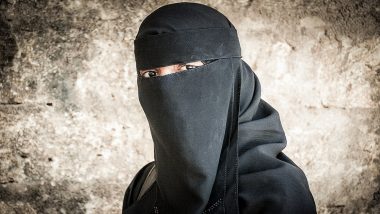Ten years after France implemented a ban on full face veils in public in its country, the United Nations Human Rights Committee has called it a “violation of religious freedom.”
The ruling which looked at France’s decision to introduce the ban across the country and has been followed by other European countries, says that France has not explained adequately why the ban was necessary.
In its statement, the committee said it was "not persuaded by France's claim that a ban on face covering was necessary and proportionate from a security standpoint or for attaining the goal of 'living together' in society."
The UN body found that the French law, passed in 2010, violated the rights of two French women, who were fined in 2012 for concealing their faces in public. They had filed a complaint in 2016.
"The Committee found that the general criminal ban on the wearing of the niqab in public introduced by the French law disproportionately harmed the petitioners' right to manifest their religious beliefs, and that France had not adequately explained why it was necessary to prohibit this clothing," the UN experts said in a statement.
"The ban, rather than protecting fully-veiled women, could have the opposite effect of confining them to their homes, impeding their access to public services and marginalising them," the statement added.
According to the non-binding ruling, the French government has 180 days to report back to the UN committee, which has asked for compensation for the two petitioners.
Meanwhile, Yuval Shany, committee chairman, stressed that "the decisions are not directed against the notion of secularity, nor are they an endorsement of a custom which many on the Committee, including myself, regard as a form of oppression of women."
France was the first European country to ban the veil in public places with a law that took effect in 2011 and was upheld by the European Court of Human Rights in 2014. Women can be fined up to 150 euros ($170) for failing to abide by it.
Other European countries have also followed suit with similar legislation in Denmark, Belgium, Austria, the Netherlands, Bulgaria and parts of Switzerland.
(The above story first appeared on LatestLY on Oct 24, 2018 06:47 AM IST. For more news and updates on politics, world, sports, entertainment and lifestyle, log on to our website latestly.com).













 Quickly
Quickly





















